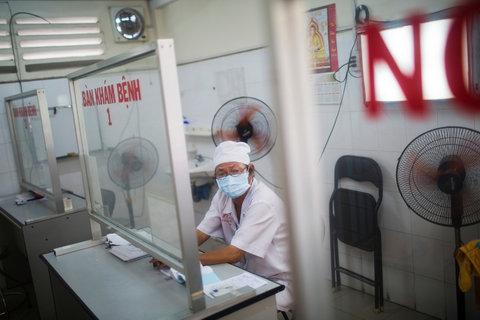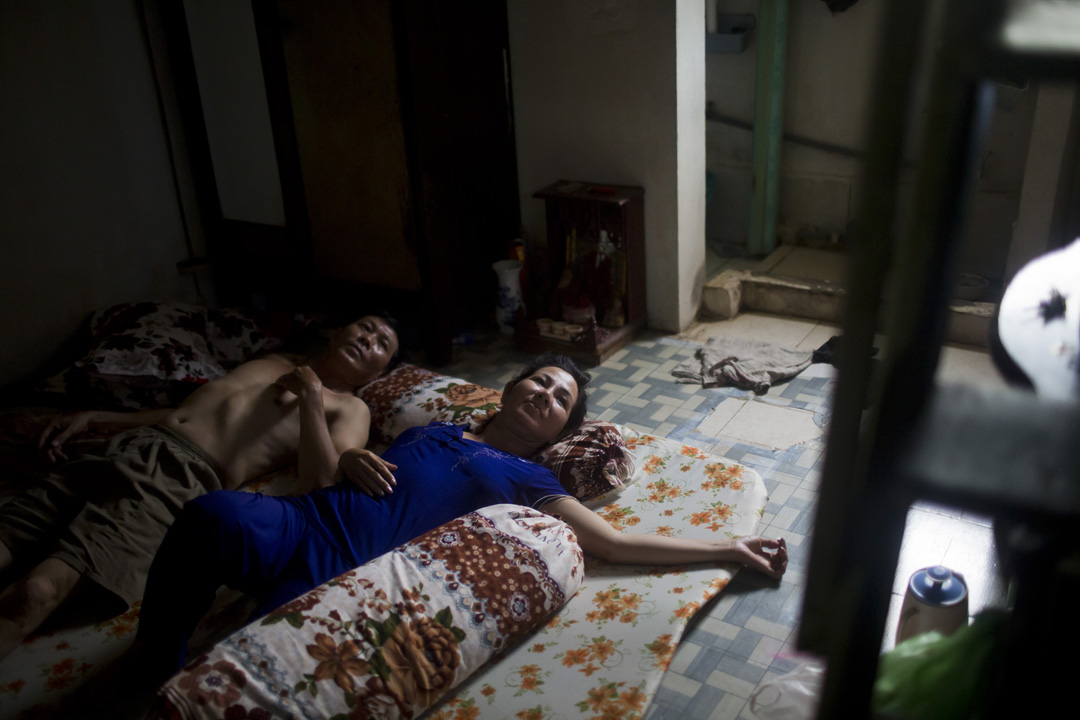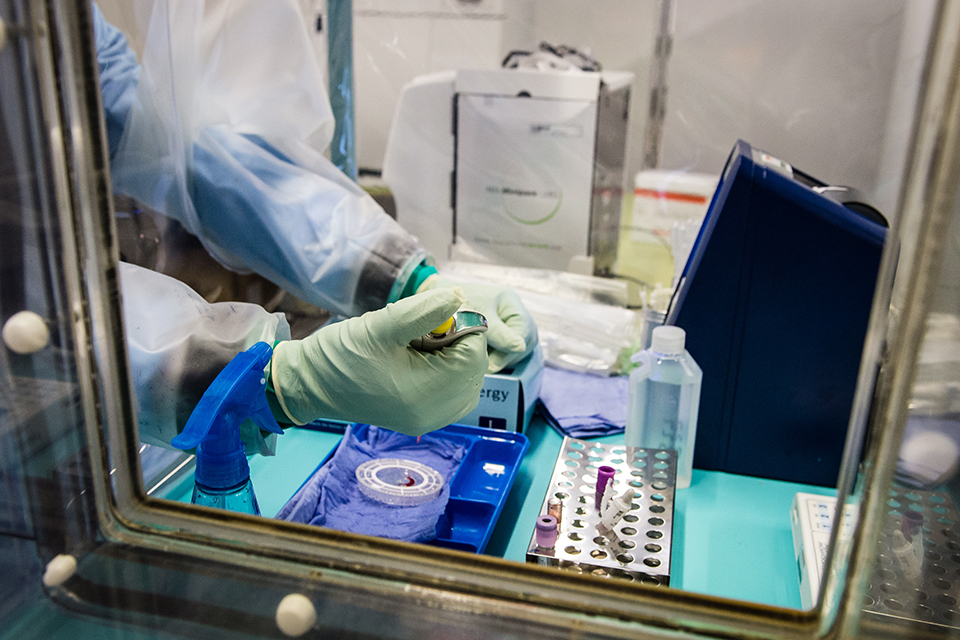
Editor's note: Newsweek published Amy Maxmen's e-book, "Ebola's Unpaid Heroes," on July 16, 2015. Learn more about the book here.
In a BBC interview on Sunday, June 21, UK Defense Secretary Michael Fallon announced his plans to stop the illicit flow of migrants across the Mediterranean at its source: namely, impoverished African countries. Fallon noted: "we can use our overseas aid budget...to help stabilize some of these countries and discourage this kind of mass migration." The policy seems far-thinking and prudent—that is, until we recall the rampant inefficiency surrounding the business of foreign aid.
Consider, for example, the global response to the Ebola outbreak in West Africa. Many Ebola deaths stemmed not from the disease alone, but from frustratingly preventable causes—understaffed hospitals, lack of drinking water, or shoddy roads, to name a few. When Pulitzer Center grantee Amy Maxmen documented the Ebola outbreak in Sierra Leone, the nurses she met were underpaid, lacking essentials like mattresses and shoes for their children.
Pulitzer Center grantee Jens Erik Gould, moreover, reported on the prevalence of tuberculosis in Vietnam. Though diagnostic tools like the "GeneXpert" machine are quick and accurate, the $10 cartridges often exceed hospital budgets, and they require electricity, often inaccessible in rural areas. As a result, Gould reports, "some three million cases of TB—one-third of the global total—still go undiagnosed."
When it comes to healthcare in developing countries, lack of basic infrastructure can prove as fatal as the diseases themselves. These changes require little money to implement, but all too often, countries awash in aid money fail to direct funds to their highest potential.
The distribution of Ebola aid, for one, has been extraordinarily inefficient. Maxmen points to a case in which the UK government reported it had spent $12 million on staff salaries and living expenses in a single clinic, which treated a mere 280 people. The New York Times reported in April that, of the 11 costly Ebola clinics that the U.S. government built in West Africa, nine have gone unused.
Ebola money often eludes its intended recipients altogether. In October 2014, Sierra Leone's auditor general reported $3 million of Ebola aid money as missing, but according to Maxmen, the sum vastly under-represents the amount of "misplaced" aid funds from the Ebola outbreak. Estimates of the amount of money pledged to the Ebola cause worldwide vary from the World Bank's figure, $6.7 billion, to the UN's estimate of $3.3 billion. In any case, Maxmen says, "only about half of the amount pledged has left donor pockets."
Aid organizations could stand to reorganize not only the distribution of their funds on the ground, but the allocation of their funds to different diseases. Gould has pointed out that, although tuberculosis killed some 1.5 million people in 2013 and continues to ravage developing countries, there nevertheless exists a shortfall of $1.6 billion per year needed to treat TB patients worldwide (according to the World Health Organization). Gould also notes that the Global Fund, the largest source of TB financing, allocates only 15 percent of its donors' money to TB, compared with 52 percent for HIV and 28 percent for malaria. Similarly, the U.S. government spent close to eight times as much money on malaria as it did on TB programs in 2013.
Gould attributes global apathy surrounding TB to the fact that the disease has been largely eradicated in the developed world, and that its slow onset is "unlike the fast and dramatic impact of Ebola." Sadly, these kinds of factors can impact the direction of aid: Without powerful or glamorous supporters, millions struggle through TB treatment anonymously and with meager resources.
In proposing to stop dangerous migration by bolstering aid to migrants' homelands, the UK defense minister relies on a big "if." Fallon cannot depend on the transparent and efficient distribution of aid funds by the UK government, because large aid organizations have a history of doing just the opposite. Still, measures as simple as smarter money management and reorganized aid priorities could reverse this trend—improving countless lives in the process.

Vietnam has less than 30 percent of the funding needed to fight tuberculosis. With only the most...









